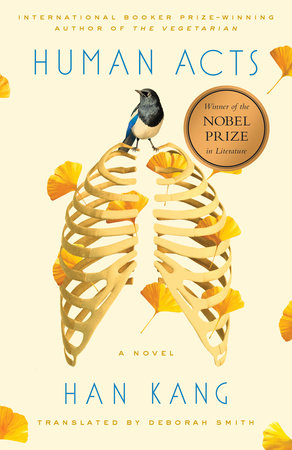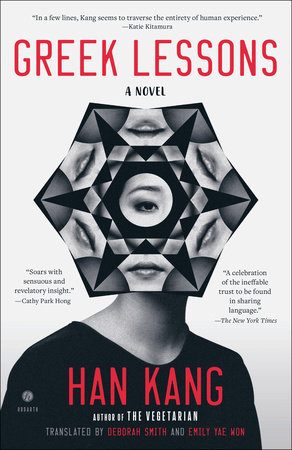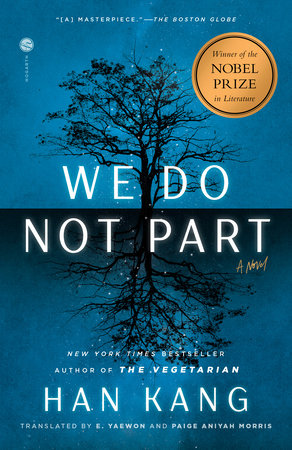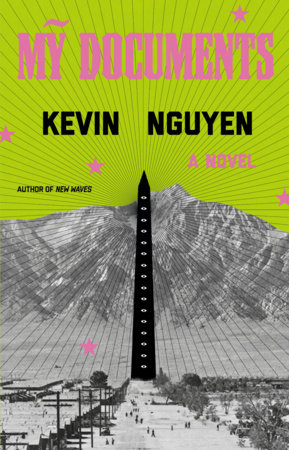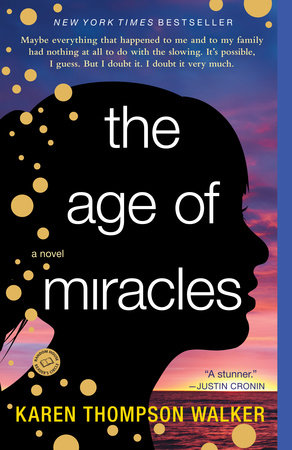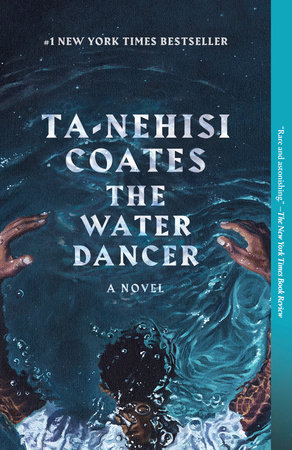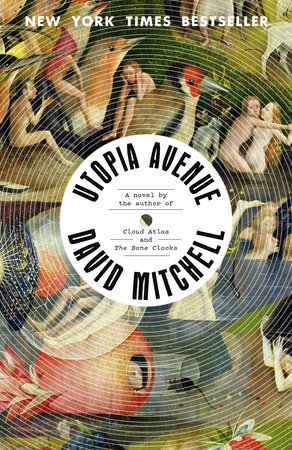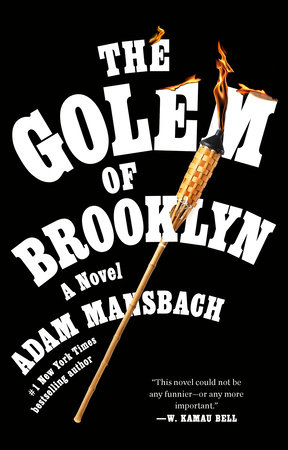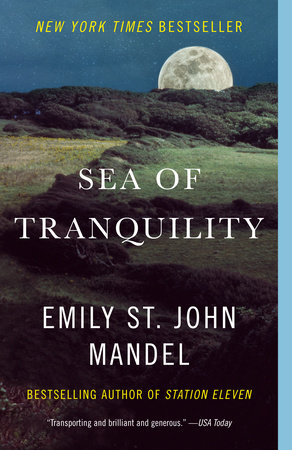A Conversation with
Han Kang,
Man Booker International Prize–winning
author of The Vegetarian
and Human Acts
(Available in paperback October 17, 2017)
You were born in Gwangju, where the massacre in Human Acts occurs. How did it impact you when you were growing up?
I was born in Gwangju and moved up to Seoul with my family when I was nine, hardly four months before the massacre. We had moved purely by chance and because of this seemingly minor decision we remained unscathed. That fact became a kind of survivor’s guilt and troubled my family for a long time. I was twelve when I first saw a photo book, produced and circulated in secret, to bear witness to the massacre. My father had brought it back with him after visiting Gwangju. After it had been passed around the adults, it was hidden away in a bookcase, spine facing backward. I opened it unwittingly, having no idea what it contained. I was too young to know how to receive the proof of overwhelming violence that was contained in those pages. How could human beings do such things to one another? On the heels of this first question, another swiftly followed: What can we do in the face of such violence? In that way, I was presented with two unsolvable riddles—that of human violence and that of human dignity, stamped on my heart like a seal.
Why did you decide to write about the massacre?
I can say the massacre had a significant influence on my writing. The questions about being human had been a sort of homework for me. I had to penetrate the incident, at a moment in the winter of 2012, to go on with my writing. People seem to regard Human Acts as a huge transformation in my writing career but for me, this novel is closely connected to my previous novels. Human Acts is an attempt to answer the questions that had utmost importance to me.
How did you develop the different characters in Human Acts?
I read the materials about May 1980 for some months. These characters are not exactly connected to people who exist(ed). However, you could say that almost all the things that happen in this book are inspired by reality. I wanted to dedicate this book to the boy who didn’t make it through the spring. Then I imagined the survivors who have remembered him and called him. I wanted to lend them my sensation and life.
You’ve been writing for years, in different genres, and won numerous prizes in South Korea. What’s the difference for you between writing, for example, poetry and fiction?
For me, poetry, short stories, and novels are all closely intertwined. My first poetry collection was published a couple of years ago. Out of the hundred-plus poems I’d written, I chose sixty and arranged them into five sections; I was able to discern a similar feeling uniting those poems, which were written while I was also writing a particular novel. Of course these poems are independent from my prose fiction, but they had undoubtedly been influenced by the same questions and emotions that I’d lived with, and the images that had absorbed me while I was writing my novels. This process is extremely personal and intuitive, and so it isn’t easy to clarify. I can just say that a poem’s deepest connection is to language. It will come to me as a single line, which usually forms the beginning of the poem but sometimes ends up in the middle or at the end. These intuitive flashes find their way to me whenever I’m unwell or have to move house, when the flow of my life is interrupted by the trivial or the significant.
Do you find yourself returning to similar themes in your work?
In some ways I feel that I keep pushing my life forward little by little as I finish one novel and go on to the next. After just managing to complete the questions I had been holding onto in one novel, I move on to the next novel, the next questions, the next step in life. Sometimes I return to a similar theme, as I did when I wrote Human Acts after The Vegetarian. The two novels don’t seem to bear any external relation, but I can see that there is a quiet internal connection between them.
You spent time during the summer of 2014 at the British Centre for Literary Translation’s summer school. What did you learn there? What have you found through the process of having your own work translated?
It was a great pleasure for me to participate in these sessions, and I truly enjoyed the time we spent together. I have been fascinated by the delicacy of language from a young age, and it is still an important art of what keeps me going as a writer. During these sessions, which progressed as slowly as possible, and with surprising patience, I felt great happiness in sharing this delicacy.
Did you always want to be a writer?
Yes, since I was fourteen.
You’ve had a remarkable year, including winning the Man Booker International Prize in May. How has the attention changed the way you write?
Hopefully nothing. I have lived a very personal life. I am writing slowly every day.
What are you working on now?
My new book was published in Korea last June, and will be out in the UK in November 2017. It isn’t easy to classify the book. It could be called a novella or a prose poem. Now I am working on my next novel. I don’t want to rush. I am writing slowly.
